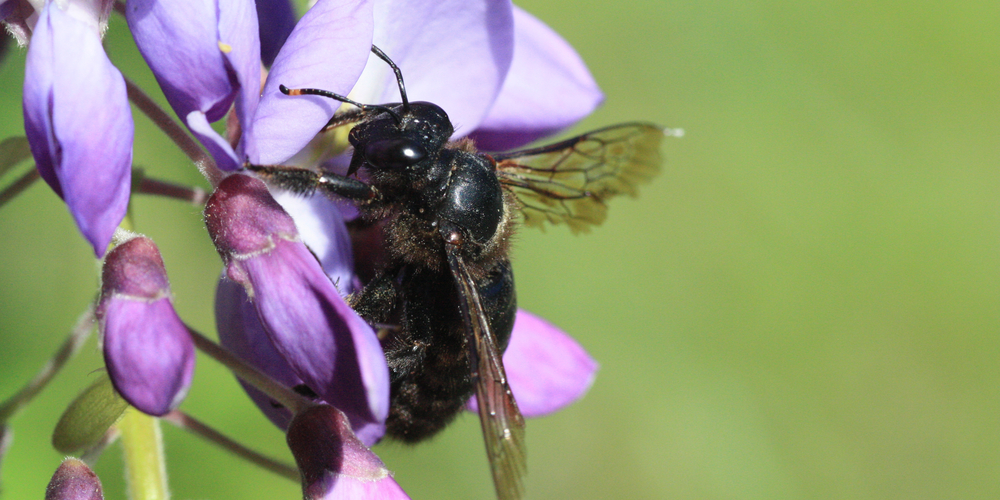Bees play an essential role in our ecosystem, and their survival is crucial to the environment’s health. Bees are often associated with warm weather and sunny days, synonymous with summertime. They buzz around flowers, gathering nectar and pollen to make honey. You may be wondering ‘do bees like cold weather?’
When faced with extremely cold weather, bees are somewhat similar to us. They try to find warmth and shelter, although their methods for doing so are a bit different from ours. Short answer – bees do not like cold weather. In fact, cold weather is one of the biggest threats to bee populations.
Whether you’re a bee caretaker or just someone who wants to learn more about these fantastic creatures, read on to find out how bees survive the winter.
Do Bees Like Cold Weather?

When temperatures drop to 50 degrees Fahrenheit or below, the bees retreat and go back to their hives, where they cluster together to generate heat.
They start to feel sluggish and stop flying as their body temperature declines. If the temperature outside falls below freezing, the bees will enter a state of torpor where their metabolism slows down, and they become unresponsive.
Their huddled masses raise the hive’s temperature, and bees take turns moving from the inside to the outside of the cluster to regulate their own body temperatures. By doing this, they can keep the temperature of the hive at a toasty 95 degrees Fahrenheit.
How Do Bees Survive the Winter?
While most animals spend the winter huddling for warmth, bees take a different approach. While bees aren’t typically inactive during the winter, you don’t see them often because they don’t venture far from their hives.
Bees have different methods of surviving the winter, depending on the species. Some bees, like bumblebees, die off after their final flight of the season, while others, like honeybees, live through the winter by staying in their hives.
Here’s how they get through the colder months:
Bees Cluster Together for Warmth
As the weather cools and days grow shorter, bees begin to prepare for winter. One of the most important things they do is cluster together for warmth.
By huddling together, bees can generate enough body heat to keep the entire group warm. They do this by shivering their flight muscles.
This is especially crucial for the queen bee, who must survive until spring to lay eggs and start a new colony. They gather around and keep the queen bee warm by flapping their wings and vibrating their abdomens.
The queen bee will stop laying eggs in the fall, and her only job is to keep herself alive until warmer weather returns.
Bees Eat Their Honey
During the winter, bees rely on the honey they’ve stored up during the warmer months. Before the colder temperature starts, they forage for as much pollen and nectar as possible to make honey.
They need about 60 pounds of honey to get through the winter, so it’s important for beekeepers to leave some honey for the bees.
This gives them a steady source of food that they can access even when the weather is too cold to venture outside. In addition to providing them with energy, honey also contains properties that help keep bees healthy and fight off diseases.
They Slow Down Their Metabolism
Bees also enter a state of torpor to survive the winter. In this state, their metabolism slows down, and they become unresponsive. This allows them to save energy and survive on less food. This state is similar to hibernation, but it doesn’t last as long.
Bees typically only enter this state for a few days or weeks at a time. They’ll come out of torpor if the weather warms up, even if just for a short period of time. This helps them conserve their energy and survive until spring arrives.
Bees Insulate Their Hives
Bees also work to insulate their hives in preparation for winter. They do this by using wax to fill in any cracks or holes in the hive. They also add an extra layer of beeswax to the outside of their hive.
This helps keep heat from escaping and keeps the inside of the hive at a comfortable temperature. In fact, the inside of a beehive can be up to 95 degrees Fahrenheit even when it’s freezing outside.
Do bees like cold weather: Final Thoughts
Bees are amazing creatures that have a lot of different methods for surviving the winter. By huddling together, eating honey, and slowing down their metabolism, they can make it through even the coldest months.
Their adaptability is one of the things that makes them so fascinating to study.
Related Article: Does Weed and Feed Kill Bees?
